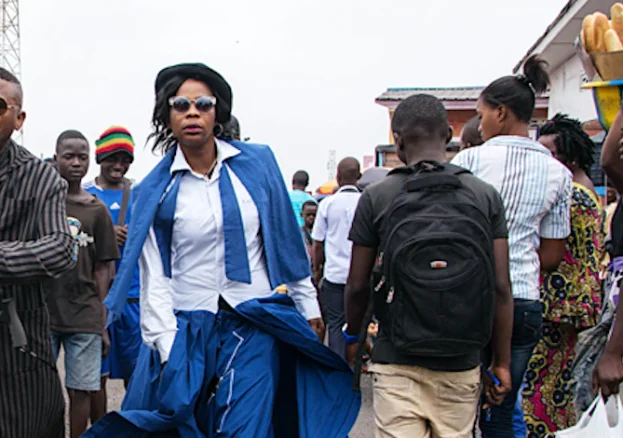
Join us as we celebrate LGBT+ History month against the backdrop of the Les Sapeuses: the Women Dandies of the DRC exhibition. The panel will be incorporating speakers across disciplines in Sartorialism and Queer history and chaired by Curator, Sally Howard.
Following the discussion there will be a drinks reception in the Heritage Gallery where guests are invited to network.
Les Sapeuses: the Women Dandies of the DRC documents the life and style of the sapeuses, the Democratic Republic of the Congo’s ‘female dandies’ subculture, through the reportage photography of Kinshasa-based photographer Junior D. Kannah.
Location: Queen Anne Court, University of Greenwich Park Row London SE10 9NW
Date and time: Fri, 24 February 2023, 18:00 – 20:00 GMT
Reserve a Spot here
The panel:
- Sally Howard is curator of this exhibition, which emerged from a 2018 story on which she collaborated with Junior Kannah for Marie Claire USA. Sally Howard is a UK-based broadsheet journalist and the author of several books on social affairs and feminism. She holds a Master’s in Gender Studies and the Global South from SOAS, University of London.
- Heather Moradeyo is a Nigerian activist and Social Media Coordinator for UK Black Pride and will be speaking on Queer Sartorialsims.
- Eka Ikpe is an academic at King’s College London doing work on the political economy of the fashion industry in Africa. The panel will draw on her work on the political economy of the fashion industry in Africa; fashion and development. We will also talk about fashion practices as resistance and queer approaches from other speakers.
About the exhibition
The sapeurs – or Société des Ambianceurs et des Personnes Élégantes (the Society of Tastemakers and Elegant People) – sought to resist French and Belgian colonial rule by adopting and pastiching the ‘master’s clothes’, with prominent sapeurs also being key players in influential Parisian anti-colonial pressure group L’Amicale.
The sapeur style and gentlemanly code of honour was formalised in the mid-20th century under the leadership of ‘dapper’ Papa Wemba, a rumba artist who was known for his taste in dazzling white suits and monochrome spats. Bemba influenced a later generation of sapeurs who rose to political power through the turbulent years of the Congolese and continental wars and whose subculture has now entered the mainstream (controversial president of the DRC, Joseph Kabila, is a self-confessed sapeur).
The female answer to the sapeurs, les sapeuses, have emerged in the past decade as young female Kinshasans view the inherited traditions of la sape as method of escape from rigid gendered roles and expectations. For some sapeuses, who traditionally dress in masculine suits and accessories imported via the Congolese diaspora in Belgium and France, la sape is a return to pre-colonial modes of strong African femininity; for others the movement, with its sapeuse solidarity clubs and rich socio-historical heritage, is a means of operating as a queer woman in a nation and era in which homophobia is rife.
